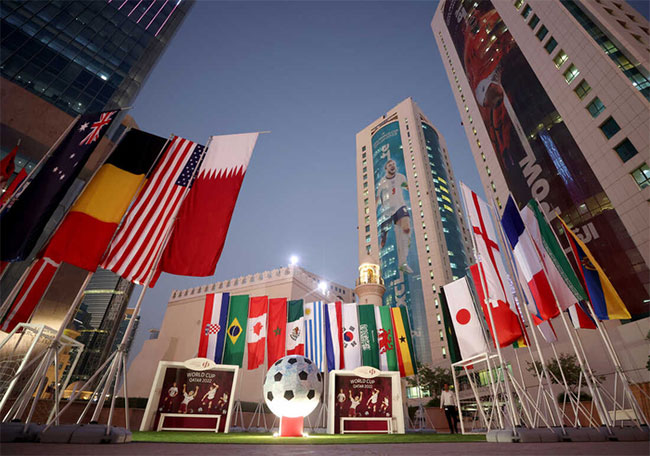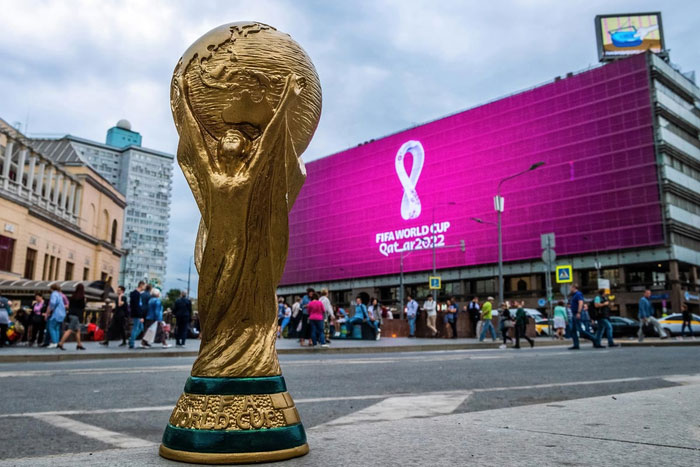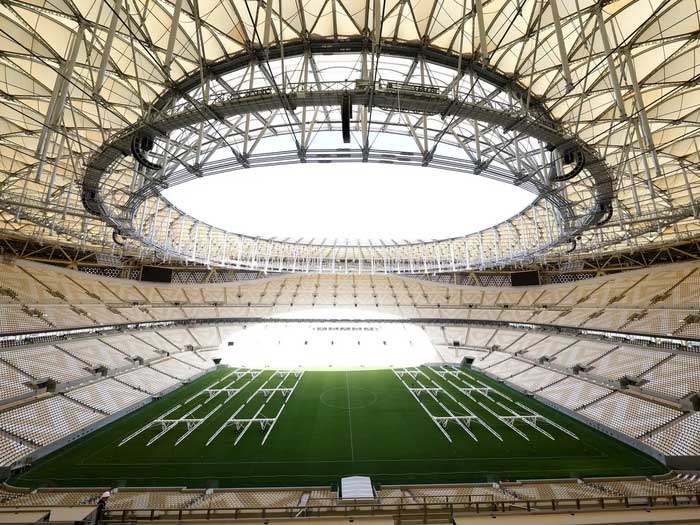Hosting large-scale global events is expensive, but the benefits are significant.
The FIFA World Cup is considered the largest sporting event in the world, attracting more viewers than even the Olympic Games. The upcoming matches in Qatar are expected to garner over 5 billion views worldwide, with more than 1 million spectators attending the matches live in the stadium.

The upcoming matches in Qatar are expected to garner over 5 billion views worldwide.
To attend this event, participants must incur various expenses, including ticket prices, travel costs, shopping, and even money for souvenirs from the matches. But does the money spent by attendees compensate for the organizing costs borne by the host country?
The answer is no. Most countries hosting the World Cup have to spend tens of billions of USD on preparation, developing infrastructure, hotels, stadiums, and more. Most of these costs are typically unrecoverable, at least in cash terms.
It is undeniable that the World Cup is a cash cow. The broadcasting rights for the 2018 World Cup in Russia were sold to television networks worldwide for $4.6 billion (over 114 trillion VND), but this money is retained by the Fédération Internationale de Football Association (FIFA), not the host country.

FIFA retains 100% of ticket sales and marketing revenue.
Similarly, FIFA also retains 100% of revenue from ticket sales and marketing. However, the organization will cover the main costs of hosting the tournament, with Qatar receiving around $1.7 billion (over 42 trillion VND), which includes prize money of $440 million (nearly 11 trillion VND) for winning teams.
Despite this, that amount pales in comparison to the $200 billion (nearly 5 million trillion VND) that the country has spent on building infrastructure, hotels, and entertainment areas around the event, as well as a complete overhaul of the road network and rail systems.
With over 1 million foreign visitors expected during the month-long tournament, Qatar will witness a surge in tourism, contributing to increased revenue for hotel owners, restaurants, and tourist attractions.

Qatar will experience a surge in tourism during the 2022 World Cup. (Illustrative image).
This sudden increase in tourism demands additional investment from the host country, and the costs incurred will certainly exceed the revenue generated in the short term.
So, who will benefit the most from this revenue?
The World Economic Forum stated: “Hotel prices will soar during the tournament, but the wages of hotel workers will not increase much, meaning that the profits will belong to the hotel owners rather than the workforce.”
And of course, those with money will become richer, while workers will remain in their positions.
Additionally, when tourists purchase goods, drinks, or anything from FIFA’s partners, the host country will not receive any revenue, even though the taxes these brands pay have been significantly reduced during the bidding process to host the World Cup.
Ordinary tourists who are not interested in attending the World Cup tend to avoid Qatar during this time as they do not want to get caught in noisy crowds, chaotic traffic, and skyrocketing prices. In fact, Qatar does not allow entry from November 1 until the end of the tournament unless tourists have World Cup tickets.
Therefore, in the short term, becoming a host country will not bring any financial significance. However, some things are worth more than money.

The World Cup will provide the world with a new perspective on this country. (Illustrative image).
Hosting the World Cup is a fantastic opportunity for Qatar to showcase its soft power – the ability to achieve goals through attraction rather than coercion or bribery. More specifically, it will offer the world a new perspective on the country, presenting it as a potential place for investment and business.
In the long term, if managed properly, the money spent on organizing this event will nurture and robustly expand the nation’s economy. The roads and transportation projects that are renovated will provide economic benefits for many years after the final whistle of the World Cup.
For the host country, organizing the World Cup is a source of pride and honor, not just a business for profit. It is a way for the nation to open its arms and declare to the world: “This place always welcomes you.”
- The modern beauty of Qatar – one of the richest countries on the planet hosting the 2022 World Cup
- From a barren land, why has Qatar – the host of the 2022 World Cup become one of the richest countries on the planet?
- Record heat, Qatar installs massive outdoor air conditioning to help residents stay cool


















































